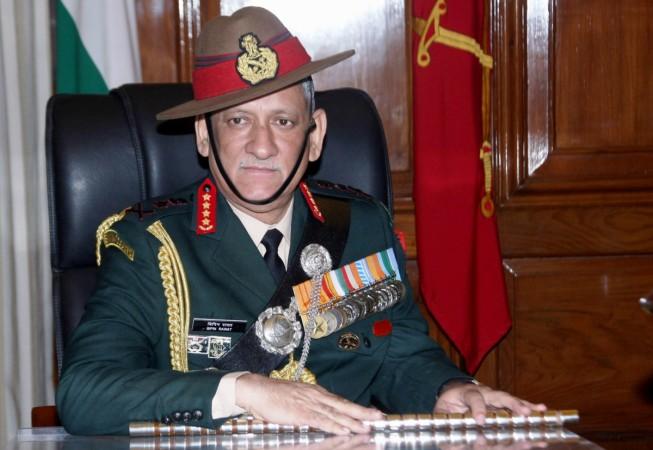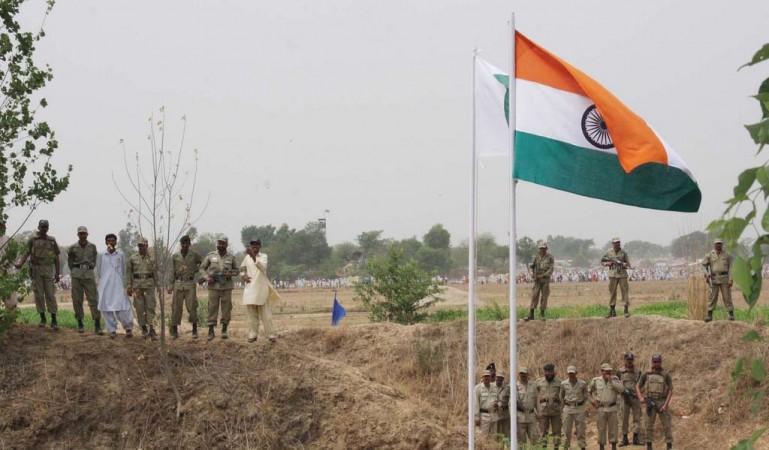Indian Army Chief Gen Bipin Rawat on Wednesday urged the country to be prepared for a potential two-front war with China in the north, where it is flexing its muscles, and Pakistan in the West, as there is little hope for reconciliation with that neighbour.
Rawat's observation about both neighbours countries posing a conflict threat to India came just a few days after the 73-day Doklam standoff came to an end in the India-Bhutan-China tri-junction.
"As far as the northern adversary is concerned, flexing of muscles has started. Salami slicing, taking over territory in a very gradual manner, testing our limits of the threshold is something we have to be wary about and remain prepared for situations which could gradually emerge into conflict," Rawat said at a seminar organised by the Centre for Land Warfare Studies in New Delhi.
"Salami tactics" is defined as "a divide-and-conquer process of threats and alliances used to overcome opposition." It is often adopted by military forces or hostile countries to take over land of other countries.

Gen Rawat also said Pakistan — an ally of China — will then take advantage of the war. "As far as our western adversary is concerned, we don't see any scope of reconciliation, because the military, polity and people of that nation have been made to believe that their eastern adversary, which is India, is all out to break the nation into pieces," he said.
The Army chief added that owing to this propaganda Pakistan believes India is its long-term adversary and will remain so. "Whether these conflicts will be confined or limited in space and time or whether they can expand into an all-out war along the entire front (remains to be seen). The western adversary taking advantage of the situation developing along the northern border is very much likely," he said.

He also said having nuclear supremacy doesn't help prevent war. "Credible deterrence does not take away the threat of war. Nuclear powers don't go to war and that nuclear weapons are weapons of deterrence, yes they are. But to say that they can deter war, they will not allow nations to go to war, in our context that may also not be true," he said.









